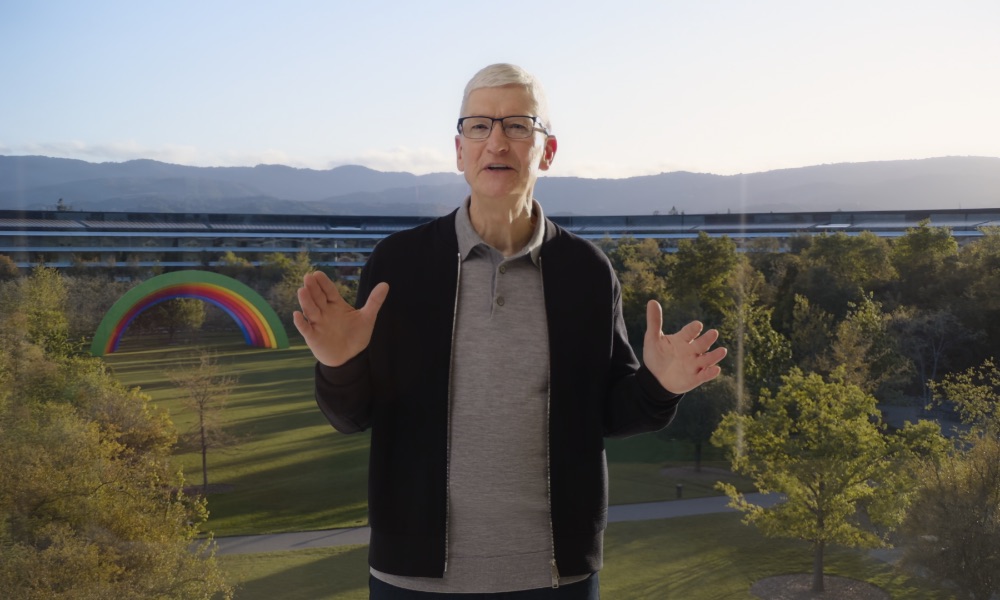Should Apple Axe Tim Cook? Research Firm Makes Bold Call

Toggle Dark Mode
Apple should show CEO Tim Cook the door, say analysts at research firm LightShed, although it doesn’t expect the company to make any changes at the top any time soon.
In a note to clients shared by Bloomberg, LightShed analysts Walter Piecyk and Joe Galone say that “Apple now needs a product-focused CEO, not one centered on logistics.”
As pointed out by Bloomberg, Apple’s shares have “badly lagged” behind those of rivals like Meta and Microsoft this year after the company demonstrated an inability to compete in the race to deliver compelling artificial intelligence features. While Meta and Microsoft shares have enjoyed gains of 25% and 19%, respectively, Apple share prices have taken a 16% hit so far in 2025.
From the note:
Missing on AI could fundamentally alter the company’s long-term trajectory and ability to grow at all. AI will reshape industries across the global economy, and Apple risks becoming one of its casualties.
It should be noted that this year’s Apple stock price slump is a mere blip in the Cupertino firm’s long-term performance under Cook’s leadership. Apple shares have gained over 1,400% since Cook took over as CEO in 2011, compared to 430% for the S&P 500.
LightShed’s comments come following news that Chief Operating Officer Jeff Williams will be stepping down from his position later this month, to be replaced by long-time operations deputy Sabih Khan. Williams, a 30-year veteran of Apple, had once been considered as a potential successor to Cook. However, John Ternus, Apple’s senior vice president of hardware engineering, is now considered to be the most likely candidate for the job.
LightShed says “Tim Cook was the right CEO at the time of his appointment and unquestionably has done a great job,” but now that Williams is departing, “it’s time for more disruptive change, not less.”
However, we are unlikely to see a move made at the top of Apple anytime soon. Bloomberg’s Mark Gurman said in the most recent edition of his Power On newsletter that there is no immediate successor on the horizon. Gurman also notes that there haven’t been any signs internally that Cook is ready to step down and hasn’t begun to groom a successor.
Most significantly, says Gurman, the board is in no hurry to make a change. There are several Cook loyalists among Apple’s board of directors, including Susan Wagner, Ronald Sugar, and Arthur Levinson:
There’s no question Cook bears responsibility for Apple’s current struggles. That includes the company’s AI missteps, an aging product lineup, the erosion of its design-focused culture, a decade-long drought of breakthrough mainstream hardware, and its growing tensions with developers and regulators. But there’s also no question that the board still sees him as the only person capable of turning things around.
Put simply: No crisis is big enough to shake the board’s faith in Cook.
Gurman sees Cook’s influence at Apple increasing, rather than waning, as he could take on the role of Apple’s Chairman of the Board, in addition to his role as CEO, giving him even more power at the company. Levinson is already past the company’s recommended board retirement age. So, we could see Levinson retire and Cook himself step into the role of Chairman. The move wouldn’t be unprecedented in the tech industry, as we have seen Cisco Systems’ Chuck Robbins and Microsoft’s Satya Nadella do so at their companies.
Perhaps ironically, Apple has virtually never had the same person in both roles; John Sculley technically held both roles in 1993, but it was only for a transition period after being appointed to his short-lived position as Chairman of the Board; he resigned as CEO only a few weeks later, handing the position over to Michael Spindler. This also occurred during the only period in Apple’s history when the company’s board also had a vice-chairman, Mike Markkula, who served as chairman from 1977 until 1981, and then again from 1985 until 1996, briefly stepping aside for a few months while Sculley tried (and ultimately failed) to take the reins. Gil Amelio also served in both roles for a relatively short period, from February 1996 until Steve Jobs’ return in 1997.
Even Apple’s legendary co-founder never held both positions simultaneously; Steve Jobs served as Chairman of the Board from 1981 until his ouster in 1985, and then returned only as CEO in 1997. He briefly became Chairman again in 2011, but only after he stepped down as CEO and handed over the reins to Tim Cook. However, it’s also notable that Apple lacked a Chairman of the Board during Jobs’ tenure; after Gil Amelio stepped down as chair in 1997 (and Markkula as vice-chair), the board was led instead by two co-lead directors: Arthur D. Levinson and Bill Campbell, the latter of whom was later replaced by Andrea Jung. Levinson wasn’t appointed Chairman until after Jobs’ death.
While we may not see Tim Cook step down as Apple’s CEO anytime soon, Apple does need to adapt to the changes in the industry, and its executives are aware of this. Apple needs only to look to BlackBerry and Nokia as examples of companies that didn’t react quickly enough to the changing whims of customers.







